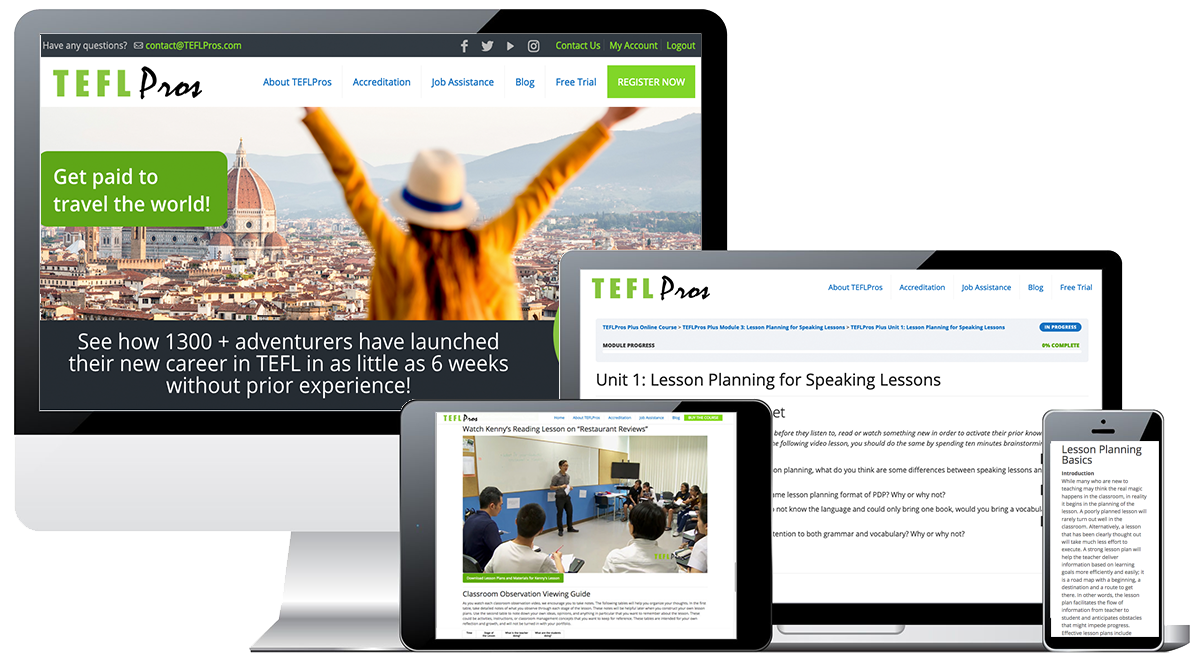
Learn How to Make Your First Day Lesson Count
November 2, 2017
Staying Healthy as a Teacher
November 27, 2017
Four Types of EFL Students
Ever wonder what types of students you might teach as an EFL professional? In this post, we are sharing some insights about the types of students typically encountered by EFL teachers. Here are four types of EFL students.
What happens behind the classroom door? Who will my students be? Will they like me? Will I be able to relate to them? These are all normal questions for new teachers to wonder about. Furthermore, if you are a native speaker, you may not have any personal EFL experience to draw from.
So let us help paint the picture for you.

First of all, it is a common misconception that TEFL = teaching children.That could not be further from the truth. In fact, the majority of job positions available in the TEFL industry are for adult language schools. That’s right people…you get to teach adult students. Whew!

Second of all, many people think that TEFL = only teaching beginner English lessons. We can totally see how scary that sounds. Imagining yourself in front of a classroom full of students who know zero English (and you knowing zero of their language) is an intimidating thought! But as you will see from our list below, this is often not the case. Many people take EFL classes to improve their job prospects, get accepted into graduate programs abroad, or to get a promotion from their employer. These types of students are not seeking basic English skills, but rather intensive English language study.
Read on below to learn some key characteristics for each group.
The Business Professional
- Working adults
- Typically come to study before or after business hours (these are your evening class peeps)
- Are sometimes sponsored by their companies
- Are typically in a service-based industry such as hospitality
- Will often take general English classes or business specific classes (these will differ from school to school but may include business writing or business meetings and presentations courses)
- Their goals include up-leveling their skill-set for their jobs, increased pay or promotions, and increased communication skills with their customers
The Soon-to-Be Study Abroader
- Recent grads (either high school or uni) or current university students
- Could be looking to attend a year of high school abroad, university abroad or grad school abroad
- Typically come to study in the afternoons after their normal school day is done
- Are often encouraged by parents or teachers to take extra classes in English to help prepare before they move abroad
- Will often take general English classes, writing specific classes, and test prep classes (think TOEFL, TOEIC and IELTS)
- Their goals include getting accepted into a university abroad and being able to study abroad with confidence
The High-Schooler/ Uni Student
- Young people from ages 14 and up
- May attend high schools or universities that do not offer adequate English language studies
- Attend language schools after their normal school day is finished
- Are often sent by their parents
- Often come with their friends from school/sign up as a group
- Will often take general English lessons
- Their goals include improving their general English skills so that they can get better grades in school and (for high schoolers) gaining acceptance into universities that require higher English language skills (or for university students) getting better job opportunities post graduation
The Stay-at-Home Parent
- Adults who have a more flexible work schedule or who do not work outside the home
- Often have school-aged children
- Will often attend classes in the morning (while their children are at school)
- Sometimes come with their friends as a fun activity to do together (or they come to make friends….hey English classes can be fun!)
- Will often take general English lessons
- Their goals include improving their general English skills and keeping up with their children’s English
So that sums up four of the most common types of EFL students you will encounter. We think knowing your potential student mix ahead of time really helps out in the lesson planning department, so make sure to ask your employer about this topic when starting out in your first TEFL job.
Want more tips and tricks about life as an EFL teacher? Head over to our blog.
Happy Teaching!






